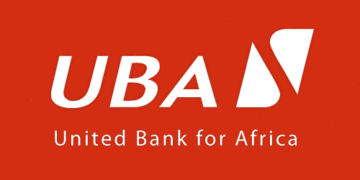A former director general of Nigerian Maritime Administration and Safety Agency (NIMASA), Dr. Ade Dosunmu, has condemned the federal government’s plans to merge NIMASA with Nigeria Customs Service (NCS) and the Federal Inland Revenue Service (FIRS).
Dosunmu’s disapproval was contained in a press release made available to LEADERSHIP, saying the move can make the nation’s coastal waters considered as no longer safe for international shipping, affect the volume of maritime trade and eventually lead to drop in revenue.
The former NIMASA DG stressed that the planned merger exposed a misconception that the nation’s apex maritime regulatory agency is a revenue generating body.
His words: “My attention has been drawn to speculation purported to have emanated from the Presidential Policy Advisory group erroneously classifying NIMASA as a revenue generating Agency, thereby, proposing a merger of NIMASA, Customs and FIRS. It is a very serious misconception and dangerous for the future of shipping/ Maritime industry in Nigeria.”
“NIMASA was created in 2007 following the merger of National Maritime Authority (NMA) and Joint Maritime Labour Industrial Council (JOMALIC) deriving its powers from Merchant Shipping Act, 2007, NIMASA Act, 2007 and Coastal and Inland shipping (cabotage) Act, 2003.
The Agency, is a Maritime Safety Administration responsible for regulating shipping activities in Nigeria with a view to achieving safer shipping and cleaner oceans as mandated by the International Maritime Organisation (IMO) through its various Conventions and Protocols.”
Dosunmu stressed that there are enabling Acts that give NIMASA statutory powers as specified by International Conventions and Protocols for the enthronement of global best practices in ensuring safety of navigation and prevention/ control of marine pollution in the shipping industry as regulated by the IMO, with Nigeria as a member state.
“The IMO has 167 Maritime Nations as members including Nigeria due to our vast maritime coastline. It issues conventions and protocols which all members’ state assent to, regulating global shipping trade. Such Conventions as Marine Pollution Prevention (MARPOL), and its various annexures i.e. Discharging of oily waste, Noxious substances and dangerous goods, Discharging of sewage, Garbage including plastics, Air emission, etc.”
“Other Conventions are; London Protocol on Prohibition of Dumping of Waste in the Marine Environment, International Convention on Wreck Removal (Nairobi Convention), Training and Certification of Seafarer (STCW ’95), Safety of Life At Sea (SOLAS), Convention on Ship Recycling to Ensure Environmental Sound Practices (Hong Kong) Convention, to mention just a few. All these conventions have been domesticated in Nigeria and NIMASA is the focal agency for implementation of the conventions through the discharge of its technical mandate which cannot be performed by any other agency in Nigeria.”
Dosunmu, however, urged the president to put aside the idea of merger until wider consultation with stakeholders are achieved.
“The President should consult major maritime stakeholders on issues affecting the Maritime industry for proper guidance. The industry is the gate way to the economy of Nigeria and also very critical to the logistics aspect of the oil and gas industry since most of the crude oil production and exploration activities take place offshore Nigerian waters. Trial and error will not work.
“Rather, NIMASA being the regulator should be strengthened technically. The whole idea of merger should be set aside until wider consultation with the industry stakeholders is held.”
“It is, therefore, my humble position that emphasis of Government should be on how to strengthen NIMASA to deliver more on its technical mandates and not merging it with Agencies that are not compatible with its philosophy and objectives.
He argued that the merger would be counterproductive for the nation as Nigeria water can be a dumping ground for rickety vessels.
“It is my strong view therefore that the proposed merger will be counterproductive with huge negative implications for Nigeria in the global shipping community. Our waters may be considered no longer safe for international shipping and that can affect the volume of maritime trade and eventually lead to drop in revenue.
*Another implication is that our waters can become a destination for rickety ships and thereby becoming a dumping ground for ship wrecks and derelicts. As at today, Nigeria is the leading maritime Nation in West and Central Africa in terms of ship traffic and cargo.
“This feat was not achieved in a day. It is the cumulative effect of the reforms successive administrations introduced to strengthen the capacity of NIMASA as a Maritime Safety Administration for the country.”











